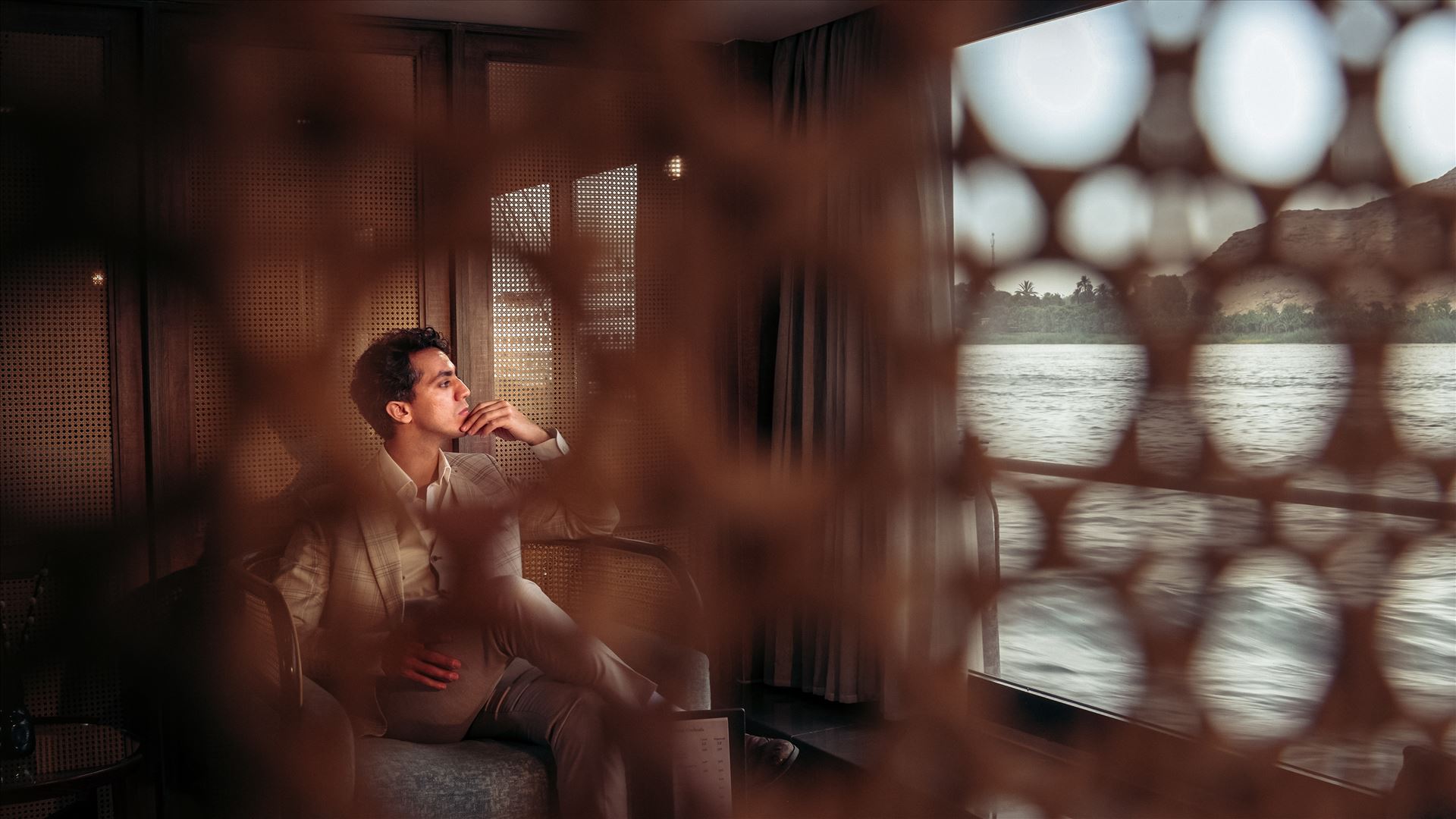
Kindly refer to the confirmation email; you will find an edit button to modify or cancel your reservation or communicate with our Reservations Team at
Reservations@the-andgroup.com. Please note that a cancellation fee may apply.
Check-in will open for guests at 12:00 PM
Departure day checkout at 08:00 AM
We understand that arrival and departure times may vary according to flight timing; please coordinate with the management team for availability in case of early arrival or late departure. In this case, guests are welcome to enjoy the public areas while waiting, with most services open for their comfort. Early arrivals or late departures may be subject to extra charges.
Children 7 years old and above are welcome at Historia.
Minors must be accompanied by a parent or guardian over 21 years old.
Babysitting services are not available on board.
An elevator and a well-appointed accessible Luxury Cabin are available for guests with special needs. Guests requiring specific assistance while on board are asked to please notify our team at Reservations@the-andgroup.com
If you book airport transfers with us, our representative will be available to guide you to the arranged vehicle, assist with your luggage, and assist with other airport pickup and drop-off procedures.
Passports are required for all guests and must be valid for six months after the voyage’s completion date. In addition, guests should have visas and any other necessary documents according to Egyptian laws and regulations.
Most tourist establishments, monumental sights, and souvenir shops accept US dollars and cashless payments by Visa and Mastercard. Having local currency for tipping or shopping in smaller souks or local restaurants is beneficial.
There are no restrictions on the amount of foreign currency or travelers’ cheques entering the country. However, passengers entering Egypt with Egyptian currency exceeding the equivalent of USD 10,000 must declare this on arrival.
Visa and Master cards are accepted on board.
Egyptian Pound (LE) is the currency unit in Egypt, divided into 100 piasters. Notes are issued in 5, 10, 20, 50, 100, and 200-pounds denominations. Coins are issued in denominations of LE 1 and 50 piasters.
All charges on board are in Egyptian pounds. Guests can pay in US Dollars, Euros, or Sterling. Please note that any change will be compensated in Egyptian pounds as no currency stock is available.
Please note that no ATM machines or currency exchanges are available on board.
Our cabins and suites are equipped with all amenities to allow guests to travel light.
Luggage restrictions and fees can vary by airline, class of service, and destination or departure airport.
For the most up-to-date luggage allowance policies and weight/size restrictions by airlines, we suggest you visit the websites of the selected airlines for your trip, most of which are updated regularly with the latest policies.
All luggage must be securely packed and clearly labeled with your full name.
Carry your Jewelry, fragile items, valuables, and important documents in your hand luggage.
Upon arrival, our crew will affix luggage labels with your name and deliver the luggage directly to your luxury cabin or suite.
Our culinary team would be delighted to arrange any special dietary preference, such as vegan, vegetarian, gluten and dairy-free. Special requirements such as low sodium or allergies should be communicated during booking time through your travel specialist or our Reservations Team at Reservations@the-andgroup.com.
The dress code style on board Histora is set to match the relaxing lifestyle of a cruising vacation.
During the day, for breakfast and lunch, the dress code is casual, wherein shirts, shoes, and bathing suit cover-ups are required when not at the pool.
During the evening, smart casual is required while dining.
Ball caps, hats, shorts, and flip-flops are prohibited during dinner service.
As in all countries with styles different from yours, it is courteous to respect local customs.
Shorts and beachwear should be worn only onshore or at the plunge pool.
When visiting mosques, synagogues, and churches, women should wear modest dresses and avoid strappy dresses, miniskirts, shorts, or low-necked dresses. Shoes are not allowed inside mosques; therefore, a thick pair of socks would protect you from floors.
Guests are not allowed to bring onboard the following items:
- Alcoholic or non-alcoholic beverages, including water, soda, and juices.
- Unsealed food items will not be allowed on board.
- Firearms, weapons of any kind, ammunition, explosive substances, or any goods of a dangerous nature.
- Irons / Ironing Boards and Steamers.
- Animals of any kind.
- Large batteries, emergency position-indicating radio beacons (EPIRB), ham radios, satellite phones, transformers, lasers, and laser pointers are not allowed onboard.
Smoking, including the use of cigarettes, e-cigarettes, and cigars, is permitted only at the Sun Deck.
The national language in Egypt is Arabic. However, tourists rarely find it a problem communicating as English is widely spoken in tourists’ sites and shops, in addition to Spanish and French as a second language.
Many staff in tourist areas also speak German or Italian.
Gratuities can be extended on a voluntary individual basis according to guests’ discretion.
Egypt has year-round sun and almost no rain except in Alexandria, which has a more Mediterranean climate than the rest of the country.
Daytime temperatures range from pleasantly warm in the winter to hot in the summer. Northern cities such as Cairo and Alexandria are generally about 5ºC cooler than southern areas such as Luxor, Aswan, and Abu Simbel. Nights in the desert can be significantly cold.
Before sailing, we ask guests to ensure they are medically and physically fit for travel.
A doctor will be on call upon the guest's request.
If the cruise is docked, the doctor may take up to 1 hour to arrive on board.
However, first responders are available onboard in case of emergencies.
Guests who misplaced items can contact the Guest Services Crew. After the voyage, guests may email our team for assistance at
FO@the-andgroup.com